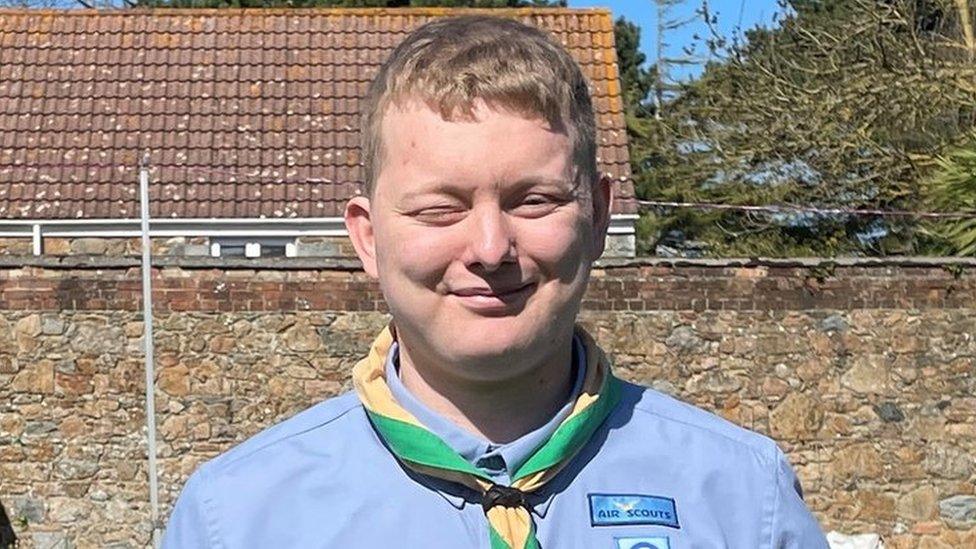Visually-impaired archaeologist at Anglo-Saxon dig
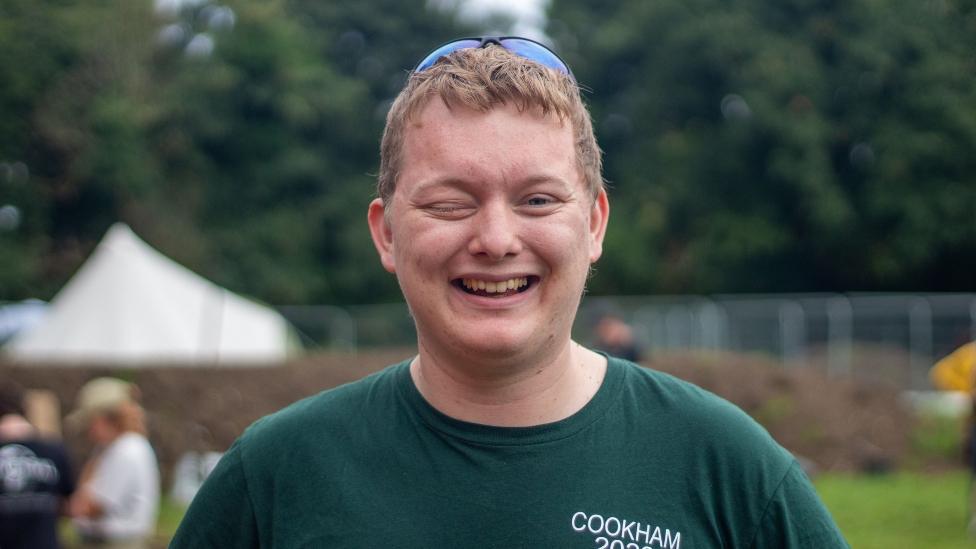
Jonathan Charmley said discovering objects during a dig was "the best feeling in the world"
At a glance
A university student from Guernsey who has been helping excavate an 8th Century monastery says it has been a great experience
Jonathan Charmley has been part of a team working on an Anglo-Saxon site in Cookham, Berkshire
The visually-impaired student said he had also been raising awareness of such disabilities to his colleagues
- Published
A university student from Guernsey who has been working with a team of archaeologists excavating an 8th Century monastery has said it has been a great experience.
He was part of a team from the University of Reading digging up an Anglo-Saxon site next to Holy Trinity Church in Cookham, Berkshire, in England.
Mr Charmley, who was left visually impaired following a brain tumour, said it was "mind-blowing" the work had helped find evidence that the Cookham monastery was a social and religious hub.
He added he also had the chance to help his colleagues understand more about visual impairments.
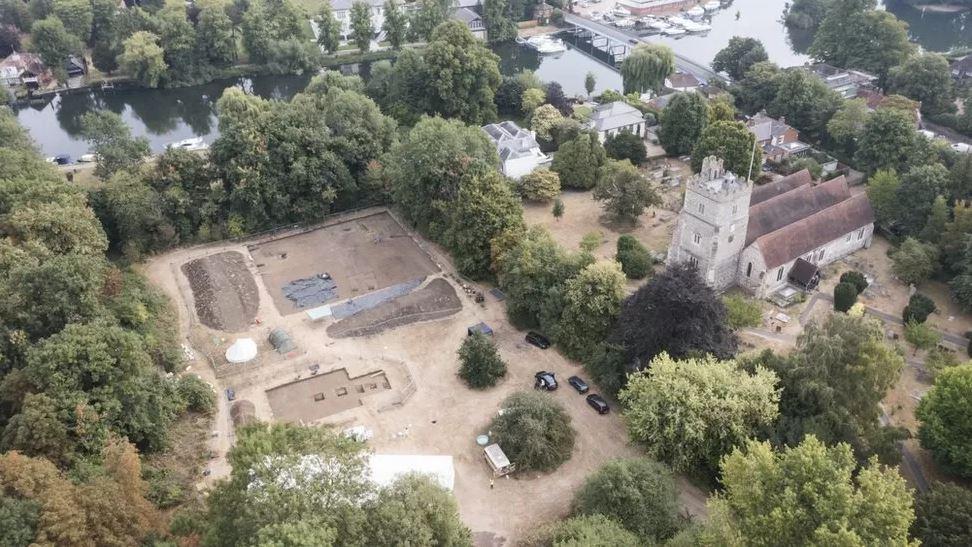
The Anglo-Saxon site next to a church in Cookham has been identified a social and religious hub
Mr Charmley was diagnosed with a brain tumour after a routine optician appointment in April 2021.
He underwent six weeks of radiotherapy and two operations during treatment for the tumour.
But, during the second surgery, he experienced nerve damage and lost the sight in his right eye.
However, he told BBC Radio Guernsey it had not held him back in his "hands-on" archaeology course, including the dig, which began in August and finished on Sunday.
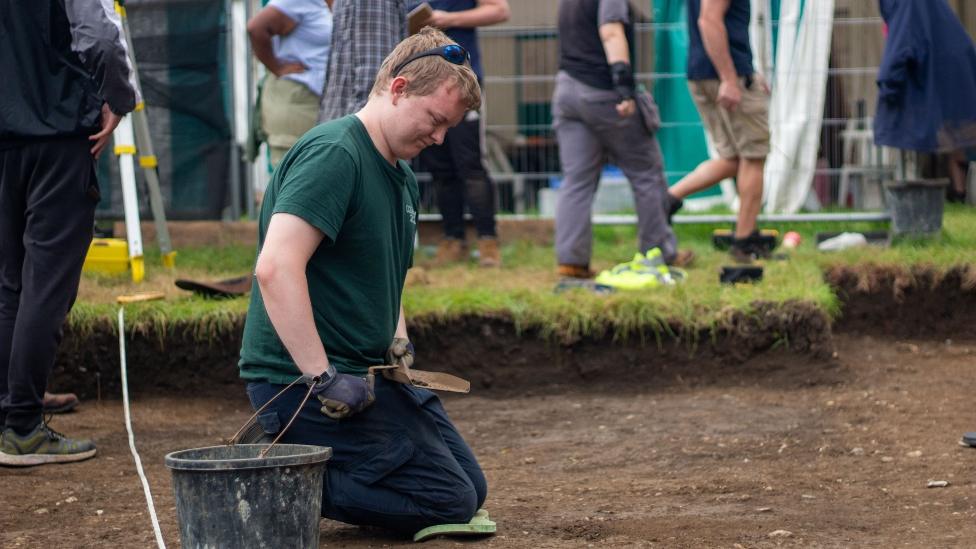
Jonathan Charmley said: "You can spend hours and hours trowelling away, but the moment you get that find, it is the best feeling in the world"
Mr Charmley said: "I've always been interested in history and and the objects left behind and particularly interested in the history of ordinary people."
He said his disability had had "some impact" when digging, but added: "I may not be able to see small changes in soil colour which indicate things, but I can hear and feel difference when trowelling."
He added: "Discovery can be best described with a fishing analogy.
"You can spend hours and hours trowelling away, but the moment you get that find, it is the best feeling in the world.
"To be the first person to see and hold that find in 1,200 years, it's just mind-blowing."
The university plans to return to the site next year for what will be its third dig there.
Follow BBC Guernsey on Twitter, external and Facebook, external. Send your story ideas to channel.islands@bbc.co.uk, external.
Related topics
- Published9 August 2023
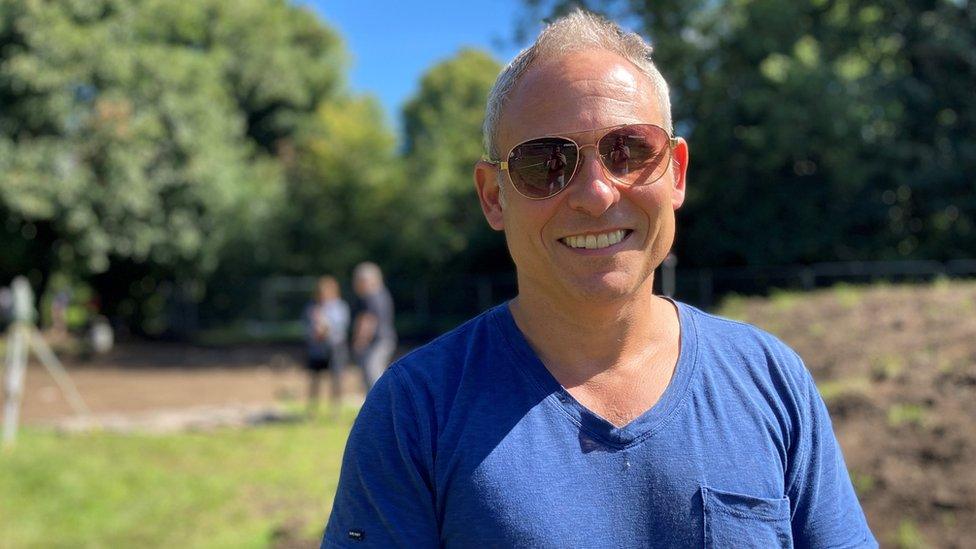
- Published7 April 2023
